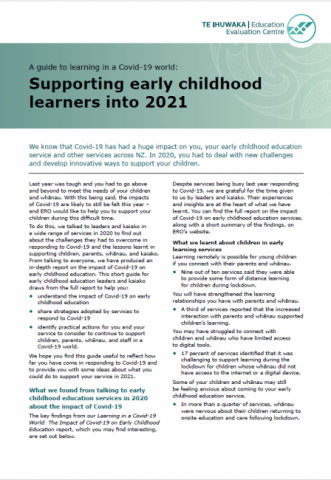Leadership
Published: 04 Sep 2017
Leadership engages in collaborative consideration of the evidence to inform a considered response to issues identified. Solutions are sought only after a thorough analysis of the problem and consideration of the evidence about what is likely to make the most difference. The implementation of new initiatives is closely evaluated.
- Audience:
- Education
- Parents
- Schools
- Content type:
- Research
- Topics:
- Improvement
- Leadership
- Evaluation indicators
- Video
- Improvement in Action Te Ahu Whakamua






